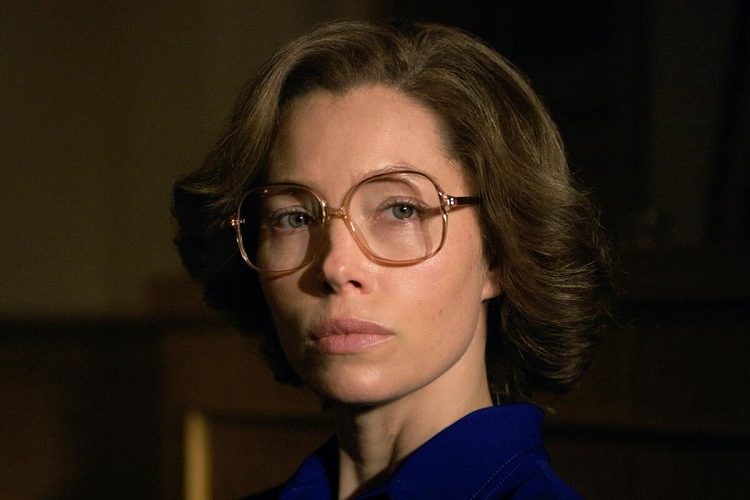Metro, October 2022
In America, it’s one of those infamous real-life suburban domestic dramas that split a nation. In 1980, Candace “Candy” Montgomery was found not guilty of the murder of her friend Betty Gore – also the wife of her lover. Gore had been struck a staggering 41 times with a wood-splitting axe – but Montgomery argued it was self defence. Nobody can really know what actually happened other than Candy herself; it all happened in Gore’s Texan home one morning while her one year old baby slept in her cot.
So there’s admittedly plenty of intrigue to build a drama around – less a whodunnit, more of a whydunnit, So much intrigue in fact, weirdly enough there’s actually another high-profile miniseries of this case, Love And Death – starring Elizabeth Olsen and Lily Rabe – to come early next year.
But Candy has got there first. Both atmospherically and visually it feels authentically 1980s – and very beige. Jessica Biel and Melanie Lynskey are on fine form as Candy and Betty, to the extent that calling this show Candy does Lynskey’s role a disservice. Both are battling suburban drudgery; annoying children, absent partners, suffocating mundanity. When Candy comes back from the unseen (at this stage) Terrible Event in episode one with blood-matted hair, there’s a desperate blankness to Biel’s visage which is fascinatingly ambiguous.
And yet. As Candy moves through its five episodes achingly slowly, it becomes less and less clear what it’s supposed to be doing. To be clear, we’ve only seen the first two hours, but it begins to feel uncomfortably voyeuristic, particularly when Gore’s children are now in their early 40s. Ultimately, it’s not a show that offers much sympathy, empathy or indeed insight; it’s just proposing a caricatured, stylised version of what happened for our entertainment.
Of course, Candy is not the first true crime drama that grapples with this issue of making drama out of tragedy. It’s worth watching just to “enjoy” Biel and Lynskey’s performances. But ultimately, they remain as characterisations, as ideas, as suppositions. In the end, you have to ask whether they’ve added much to this dreadful story.


